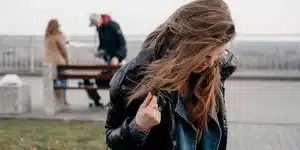Dependence on addictive substances grows manifold amid uncertainties. It makes people feel miserable. COVID-19 pandemic has just created these circumstances for people the world over. People are seen taking to substance abuse to cope with the negativity. Moreover, there are rampant relapses among those who had attained sobriety.
Relapse is always the most challenging aspect in substance abuse recovery. Complete recovery from addictive substances is possible only when patients do not have the urge to consume them again. The withdrawal symptoms come as a major setback in the road to recovery for addicts preventing them from getting back to normal. According to some media reports published at the beginning of the lockdown in 2020, eight cases of suicide were reported in Kerala as people failed to deal with alcohol withdrawal.
According to Dr. Atul Ambekar, professor at the National Drug Dependence Treatment Centre at AIIMS, New Delhi, “Withdrawal symptoms for physically dependent patients on alcohol or drugs can be distressing, although these symptoms are self-limiting that subside in a few days. However, for addicts who have a severe dependency category with other health ailments, the relapse can be fatal.”
Even medical practitioners and psychiatrists who help addicts have confirmed on numerous internet forums that there is an increase in alcohol abuse cases after the onset of the pandemic. On top of it, Dr. Ambekar has further added the current medical services are inadequate to deal with the fallout.
The experts also say that relapses would shoot up if lockdowns come down to haunt them time and again. There are high chances of people getting back to addiction whenever there is a lockdown imposed in the country. It’s natural to have cravings temporarily while recovering, but if it’s not addressed early on, it will surely lead to relapse.
According to the National Institute on Drug Abuse (NIH), addiction is a chronic, relapsing disease. NIH has estimated that roughly 40 to 60% of people who have gone through substance abuse treatment experienced some kind of relapse.
Apparently, due to the COVID-19 crisis, there is an increased need to access treatment for drug abuse. However, access to drug treatment interventions has been curtailed as a result of self-quarantine, social distancing, and other public health measures. The community pharmacies are also challenged by staff shortages, service disorganization, and self-isolation. According to a study titled “COVID-19: The Hidden Impact on Mental Health and Drug Addiction” Covid-19 pandemic has a great impact on the mental health of people and drug addiction.
The report says that there is a disruption in drug markets with reduced supply, and access to illicit drugs. It will increase internet drug-seeking activities. This is the point where relapse prevention therapy works best.
Coping with withdrawal symptoms through Relapse Prevention Therapy
In addiction treatment, patients usually develop withdrawal symptoms. Most people experience a relapse at some point while recovering from addictive substances. It’s important to be prepared because on many occasions cravings inevitably lead to relapse. It creates guilt and self-blame in the individuals that may only worsen the situation. To address the physical, psychological, and social effects of the pandemic, effective interventions have become indispensable.
Relapse Prevention Therapy is a form of cognitive-behavioral therapy that limits or prevents withdrawal symptoms. It helps the participant to forecast circumstances that can trigger relapse, teaches them to be alert for these types of feelings, and have a plan of action to deal with them. Getting this therapy under professional guidance will allow the patients to follow the procedure correctly without any hiccups. There are rehabilitation centers in India that provide relapse therapy to help people overcome addiction and subsequent relapses for a long-term recovery.
When a recovering patient suffers a relapse, it is interpreted as a failure and an inability to recover. In reality, it’s actually not. Based on this false assumption, the recovering person looks for no other option but returns to the old addiction habits like before.
On the contrary, it should be reinterpreted as opportunities for learning and improving coping skills to handle the abuse of addictive substances. It is the responsibility of the healthcare professionals to provide extra caution in diagnosing patients and making sure they don’t back to square one.
Get help from the best de-addiction center in India
Relapse prevention therapy will show results only when it is provided under expert care. At Athena Behavioral Health, we provide complimentary group therapy sessions through an online platform or support groups once addiction treatment is completed. We enable patients to indulge in daily recovery practices. It allows our therapists to monitor their symptoms and act quickly if any withdrawal symptom is observed. To get more information about our treatment programs, call us on our 24/7 available helpline at 9289086193 or chat online with our representatives.





